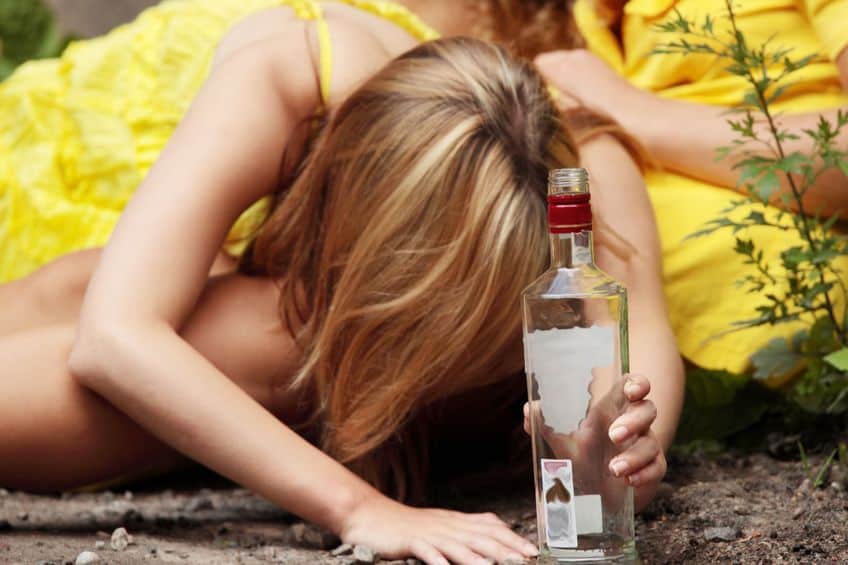
5 Important Consequences of Underage Drinking
August 17, 2017
Alcohol is the most common drug among United States youth. While some credit its wide popularity with accessibility, others believe it is simply the most publicized form of intoxication. Peer pressure, stressors, social engagements, hereditary predisposition, and media campaigns all encourage children to drink before the age of twenty one. In fact, underage drinking is starting earlier than ever before.
Studies are finding evidence of alcohol consumption beginning in grade school. If kids manage to navigate elementary, middle, and high school alcohol-free, college culture normalizes drinking completely. This makes consistent education about alcohol and its effects of utmost importance so that kids can feel empowered to make sound decisions. Throughout school careers, alcohol is accessible via family members, friends, peers, mentors, or anyone able to buy it.
Although it may buy popularity and temporary stress relief, alcohol before the body and brain are developed enough to handle it can be extremely detrimental. School performance, social outlets, sexual activity, assault, and drug use are all factors to be seriously considered.
 School Performance
School Performance
For one, alcohol has a significantly negative effect on school performance due to higher absence rates and poor or failing grades. Intoxication on school grounds is typically cause for suspension or expulsion, while intoxication after hours inhibits the ability to prepare for the following day. Studying, retaining information, and focus are all impaired by the consumption of alcohol, especially in large quantities. While this would be an intense struggle for a straight-A student, most kids are not among the highest percentile in their class. This means even more effort to stay afloat while juggling alcohol use.
Social Outlets
If a child is drinking while underage, issues between peers may arise because of moral disagreements about whether consuming alcohol is acceptable. This means the possibility of disintegrating friend groups or new connections with different crowds. Drinking alcohol may also increase aggression and decrease inhibitions, which can result in physical altercations. Whether due to physical fights or to disinterest from peers, children who drink may also be prevented from participating in extracurricular activities. This lack of social development deprives kids of skills necessary to navigate the adult world by making connections and forming healthy relationships.
Sexual Activity
Alcohol inhibits judgment, including decision making about sexual behavior. As adolescents are still waiting for the frontal lobe of the brain to develop (which governs sound judgment) alcohol consumption is especially risky. This underdeveloped physicality is combined with a drug that limits capacity further. Consent could be impacted, resulting in unwanted physical activity. Additionally, protection could fail to be part of the sexual act and could result in unwanted pregnancy. It is extremely important to have conversations around the connections between alcohol use and sex so that kids can ask questions and get clear about impact.
Assault
Along similar lines, inhibition can affect the ability to consent. An intoxicated individual cannot give consent, period. If unwanted physical or sexual activity occurs, legal action can be taken. Rape and sexual assault are often (though certainly not always) intertwined with binge alcohol use.
Other Drugs
Alcohol use and abuse can serve as a gateway to other drug use, such as marijuana, cocaine, prescription drugs, and more. By introducing the body to physical sensations of alcohol consumption along with a culture of acceptance, kids who drink underage are more likely to experiment and use other drugs. The opportunity to discuss the impact of alcohol and other drugs on child and adolescent brains is paramount so that kids can make as informed decisions as possible.
Although adolescent drinking comes with serious consequences not limited to the ones included in this particular article, there are treatment options. Inpatient centers for behavioral health allow teens to be helped among peers in a safe, inclusive space. Hillcrest Adolescent Treatment Center is an inpatient teen-only treatment facility for mental health, behavioral health and addiction issues. With specialized staff trained in adolescent treatment and health care, Hillcrest is an ideal facility for teens to receive help with underage drinking. Customized treatment plans, strength based curriculum, and comprehensive education are all pieces of the empowerment available. Contact us today for more information about how we can be of service to you and your youth. Everyone deserves to build the brightest future they possibly can.

